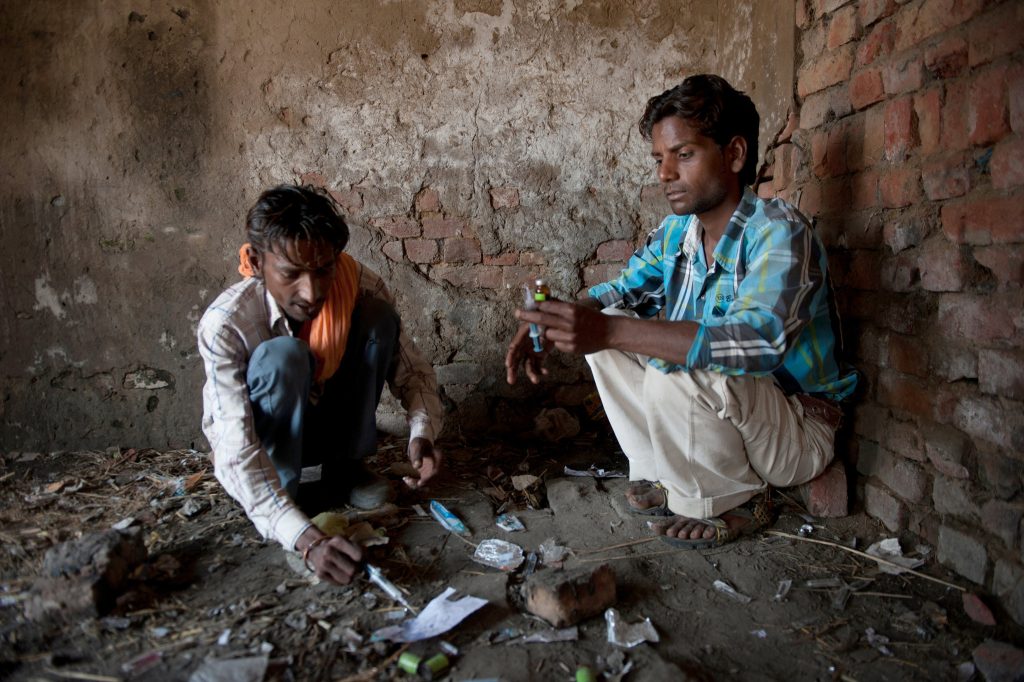What are sleep disorders-causes and treatments

Do you have trouble falling asleep? You can’t get your thoughts out of your head when you’re attempting to sleep? We all have been in the place of Alia Bhatt and Shahid Kapoor in the movie “Shaandar” singing “neend na mujhko aaye…..”.
Sleep disorders (also called sleep-wake disorders) refer to concerns with the quality, timing, and amount of sleep, resulting in individuals experiencing daytime distress and impairment in their functioning. We often see them facing other medical or mental health concerns, such as asthma, ulcers, depression, anxiety, or with cognitive disorders. Of the several different types of sleep-wake disorders, insomnia is the most common. Others include:
- Obstructive sleep apnea
- Central Sleep Apnea
- Parasomnias
- Narcolepsy
- Restless leg syndrome
- Nightmare Disorder
- Circadian Rhythm Sleep-Wake Disorders
Why is sleep important?
Having a good sleep is necessary as it has an impact on optimal health, our hormone levels, mood and weight. Sleep is an important basic human need that is critical to both our physical and mental health. How much sleep people need varies depending on their age and also varies from person to person. The National Sleep Foundation has stated that most adults require about seven to nine hours of restful sleep every night.
An important part of why sleep is necessary is because of what happens when we do not get enough of it. Sleep is essential for the brain to function properly, and so not getting enough sleep or having poor quality sleep can lead to many consequences such as:
- Fatigue
- Decreased energy
- Irritability
- Problems focusing
- Affecting the ability to make decisions
- Affecting mood
- Problems paying attention
- Aggravate their depression or anxiety (or result from their depression or anxiety)
- Dehydration
- Heart disease
- Diabetes
- Congestive heart failure
- Body ache
- Osteoarthritis
- Parkinson’s disease
As we can see, sleep disorders result in changes in the way that a person sleeps. They can affect overall health, safety, and quality of life. Furthermore, sleep deprivation can affect an individual’s ability to drive safely and increase their risk of other health concerns.
What causes sleeping disorders?
Sleep concerns can be caused by various factors and the end result is that the body’s natural cycle of sleep and daytime wakefulness gets disrupted or exaggerated. These factors include can be physical (such as ulcers), medical (such as asthma, allergies), psychiatric (such as depression and anxiety disorders), environmental (such as alcohol), working the night shift (as the work schedule affects our “biological clock”), genetics (narcolepsy is genetic), medications (that interfere with sleep), and aging.
What are the symptoms of sleep disorders?
Some symptoms that individuals might experience are:
- Fall asleep while performing activities
- Struggling to stay awake when inactive
- Experiencing performance problems
- Experiencing difficulty with paying attention or concentration
- Having difficulty with their memory
- Have slow responses
- Have difficulty controlling your emotions
- Looking sleepy
- Neck spasms
- Need to sleep or nap often
- Regularly waking up several times each night and having trouble falling back to sleep, or waking up too early
Unhealthy habits that can cause sleep disturbances:
Sleep deprivation may be both emotionally and physically draining. Sleep disturbance is largely caused by lifestyle changes; you can track down your habits and work on them to improve your sleep. Some of them include:
- Drinking too much water before bedtime: Drinking too much water before bedtime can result in frequent trips to the bathroom throughout the night.
- Having a large meal before going to bed: large meals can cause stomach acidity, which makes sleeping difficult.
- Taking long naps: this will reduce your ability to sleep at night.
- Coffee or caffeinated substances, such as tea, soda, and chocolate, act as stimulants, keeping you up for hours. it is better to avoid it 4 to 6 hours before bedtime or earlier.
- Alcohol or smoking: Drinking alcohol or smoking late at night may make you feel drowsy, but as the effect wears off, you may find it difficult to fall asleep again and this will affect your sleep pattern, in longer duration.
- Remaining awake in bed: Staying in bed with eyes open when you are unable to sleep may worsen it.
- Sleeping less or later: We always sacrifice our sleep time by watching TV or using our phones, thus we sleep less or later. Unfortunately, not getting enough sleep has a substantial impact on the quality of our waking time.
Ways to manage sleep cycle:
- Make your bed a sleep-friendly environment: Ensuring that the room temperature is neither too hot nor too chilly, dimming the lights, and blocking out outside sounds with earplugs, etc.
- Build up a relaxing routine before bedtime: try reading a book, taking a hot bath, or listening to peaceful music.
- Maintain a consistent sleep schedule: Going to bed and waking up at the same times each day trains the body’s “internal clock” to predict sleep at the same time each night.
- Avoid extended naps: if you’re tired, take a short nap early in the day, and don’t overdo it.
- Eat your dinner many hours ahead of time, and if you get hungry later, reach for healthy snacks like dairy products that won’t keep you awake.
- Exercise early: Exercise is important for your health, but doing it close to bedtime will disrupt your sleep cycle. Try to exercise in the morning or at least 3 hours before bedtime.
Types of Sleep Disorders
Insomnia
This is a sleep disorder where individuals experience difficulties falling or staying asleep. Some symptoms of insomnia are:
- Difficulty falling asleep
- Wake up often during the night and have trouble falling asleep again
- Waking up too early
- Not feeling fresh after sleeping
- Experiencing fatigue, sleepiness, affected mood, concentration, accidents during work or when driving, etc. during the day, that is caused as a result of poor sleep.
Individuals with obstructive sleep apnea experience breathing interruptions while sleeping. They have repeated episodes of airway obstruction while sleeping that cause snoring, snorting/gasping or breathing pauses. This interrupted sleep causes them to experience daytime sleepiness and fatigue.
When your upper airway is partially or completely blocked while you are sleeping, you experience obstructive sleep apnea. To widen your airway and draw air into your lungs, you have to exert more effort with your diaphragm and chest muscles.
Central Sleep Apnea
Here, the brain is unable to properly control breathing during sleep, causing an individual’s breathing to start and stop. This condition is rare and less commonly seen compared to obstructive sleep apnea. Central Sleep Apnea is seen more commonly in older adults, in individuals with heart disorders or stroke, and in individuals using opioid pain medications.
This condition can be treated using Continuous Positive Airway Pressure (CPAP) or by using another such device during sleep. It is considered to be highly effective.
Sleep-Related Hypoventilation
Sleep-related hypoventilation causes individuals to experience episodes of shallow breathing, elevated blood carbon dioxide levels, and low oxygen levels during sleep. This is a condition frequently occurring with medical conditions, such as chronic obstructive pulmonary disease (COPD), or medication or substance use.
Individuals with sleep-related hypoventilation often experience difficulties with insomnia or excessive daytime sleepiness. Individuals with medical conditions, such as obesity and hypothyroidism, and use of certain medications, such as benzodiazepines and opiates are at a higher risk for sleep-related hypoventilation.
Parasomnias
Parasomnias are a type of sleep disorder that cause abnormal movements and behaviors during sleep in people. This condition can occur during arousals from REM sleep or partial arousals from non-REM sleep. Individuals with parasomnias experience symptoms such as sleepwalking, sleep talking, groaning, nightmares, bedwetting, teeth grinding, or jaw clenching. Non-REM parasomnias are common in childhood and usually disappear by puberty.
Narcolepsy
Narcolepsy causes people to experience periods of an irrepressible need to sleep or lapse into sleep multiple times within the same day. They usually have sleepiness daily but for a diagnosis, it must occur at least thrice a week for at least three months. Narcolepsy can also lead to episodes of cataplexy, which is a brief sudden loss of muscle tone triggered by laughter or joking. The cataplexy can in turn cause head bobbing, jaw-dropping, or falls, during which the individuals are awake and aware.
Restless Legs Syndrome
Restless legs syndrome causes people to have the urge to move their legs, usually accompanied by uncomfortable sensations in their legs, which they describe as creeping, crawling, tingling, burning, or itching.
This urge to move their legs:
- Begins or worsens when they are resting or inactive
- Can be partially or totally relieved through movement
- Gets worse during the evening or at night, or occurs only in those periods
Individuals experience these symptoms at least three times per week, which continue for at least three months, and can cause significant distress or problems in their daily functioning. These symptoms of restless legs syndrome can also lead to trouble with falling asleep and can frequently awaken the person from sleep, causing daytime sleepiness.
Nightmare Disorder
Here, people have occurrences of lengthy, distressing, and well-remembered dreams that usually involve various efforts to avoid threats or danger. The nightmares tend to occur in the second half of a major sleep episode, and are lengthy, elaborate, story-like sequences of dream imagery that seem real and cause anxiety, fear or distress. Upon waking up, individuals with this disorder become quickly alert and can remember the dream and can describe it in detail.
Circadian Rhythm Sleep-Wake Disorders
These disorders cause an individual’s sleep-wake rhythms (body clock) and the external light-darkness cycle to become misaligned which then leads to significant ongoing sleep problems and extreme sleepiness during the day. This then leads to a large amount of distress or problems with functioning in the individual. Circadian rhythm disorders can be caused by internal factors such as a person’s body clock being different than the light-dark cycle or through external factors such as an incompatible work schedule or jet lag.
What is the treatment for sleep disorders?
Sleep disorders are treatable conditions. Based on the disorder, treatments can be:
- Creating healthy sleep habits and other lifestyle changes, such as diet and exercise
- Cognitive behavioral therapy (CBT) or relaxation techniques to reduce anxiety
- Using a CPAP (continuous positive airway pressure) machine or other such devices for sleep apnea
- Bright light therapy in the morning
- Medications such as sleeping pills, allergy or cold medication, medications for any underlying health issues, etc.
- Natural remedies such as melatonin, help for short-term use.
When do I go to the doctor?
If you feel like you or a loved one is experiencing any of the symptoms mentioned in this blog post, it might be time to see a doctor like your family doctor, general physician or primary healthcare provider, who may then refer you to a neurologist, psychologist, psychiatrist, or alternative medicine practitioner based on the concerns being experienced.
If you are concerned about your sleep, ask your queries or book an appointment with a mental health professional here













Responses